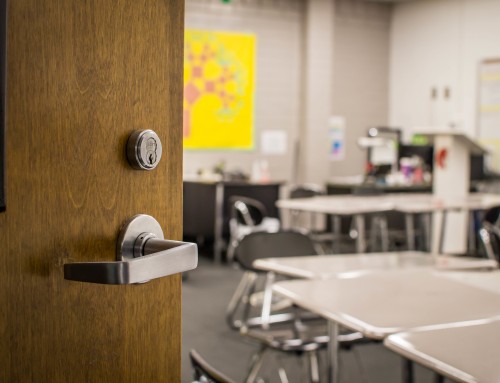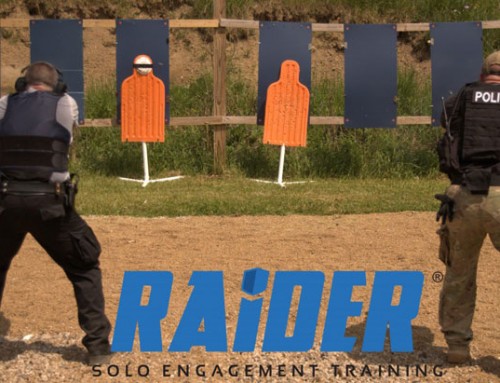As a parent, feeling confident in the safety of your child or children at the school they attend is extremely important. Determining the security of your child’s school can be difficult to assess because “school safety” is a very broad term with various applications within every school.
“School safety” can correlate to the environment and culture in which children are educated. It can be associated with to what is known as “Target Hardening”, a process that attempts to make a given school less attractive to individuals with dangerous intent. It can also relate to the security and preparedness of a school in the case of a violent intruder.
When evaluating school safety, one of the best things any parent can do is make inquiries to your school’s board and administration. Whether at a school board meeting, on a public forum, or through written communication/personal meetings, parents have the opportunity to assess the safety of their children by asking the right questions. Do not ask about the general safety of your child’s school. Word your questions carefully by being direct, knowledgeable, and specific with the school safety issues you wish to address or learn more about.
In the event of an armed intruder, here are five tactically worded questions you can ask in regard to the security measures of a given school:
1. What are the current Security and Crisis Response Procedures during the event of a violent intruder? Are these procedures co-developed with local law enforcement?
These questions will help parents evaluate the level of preparedness their school has achieved relating active shooter occurrences.
Compare your school’s current security methods to that of ALICE Training’s widely accepted active shooter training techniques and emergency response plans, to easily determine the effectiveness of your school’s security measures.
Always make sure your school is collaborating with local law enforcement to ensure emergency situations are dealt with in the most cohesive manner possible.
2. Are safety drills involving active shooter and evacuation scenarios regularly conducted? Do the drills and practices actually match the school’s written policy?
These questions will enable parents to assess the degree of effort their school puts into practicing their own security procedures, and whether or not security protocols have been adopted into writing.
School safety terminology has been under controversy recently as different schools, law enforcement agencies, and federal agencies have all chosen various words to represent different aspects of school safety in our world today. Some schools may refer to their security methods as “Emergency Operations Plans (EOP)”, while others may choose the term “Crisis and Emergency Management Planning”. This causes confusion not only in discussions relating to school safety, but can be a hindrance during actual emergency situations. Because of this problem, some local counties, such as Camden County, New Jersey, have chosen to update and establish specific terminology and procedures to effectively respond to critical situations.
Know and understand the safety and security terminology commonly used by your school or local community, to effectively communicate your concerns and receive the answers you deserve.
3. What training is being provided to assist staff and students during an active shooter event?
This question will assist parents in determining whether or not safety is a true priority in their school.
Schools that provide training and host classes, like ALICE Training’s violent intruder training, highly value the security within their school.
Schools that are serious about safety should provide some form of training to teachers and staff. Furthermore, students should also be taught and included in drills. Schools should host parents’ nights or information sessions to educate and discuss safety protocols with parents and the community.
4. What are my responsibilities as a parent, in the occurrence of a security situation? How are these responsibilities being communicated to parents?
These questions will aid parents in understanding the role they play during security situations at child’s K-12 school and how these roles are communicated to the parents.
Every school has its own standards for parental involvement in school safety threats. To prevent possibly risking the safety of your child and their classmates, make sure you understand what your school and local law enforcement require of you during these emergency situations.
5. What is the communication process between parents, local first responders, police, etc. and the school during an active shooter event?
This question will help parents determine how efficient their schools will be at subduing potential threats and minimizing casualties.
Misinformation can easily spread if a crisis situation occurs at your child’s school. Because of this, it is the responsibility of the school staff to provide parents with timely information on the status of their child’s safety. Some schools have emergency communication systems that allow students and faculty to communicate in real time via email, voice, and text messages. ALICE Training teaches students and school staff how to effectively communicate the location and direction of a violent intruder, in an effort to assist law enforcement and protect students who are evacuating or still in the process of locking down.
Parents deserve to know the safety of the schools they choose to send their children to on a daily basis. Be direct, be knowledgeable, and be specific with your questions. We hope this information will get you the answers you deserve and supply you with comfort and confidence in your school’s ability to address the crisis situations we hope you never have to experience. Knowledge is the key to survival.






